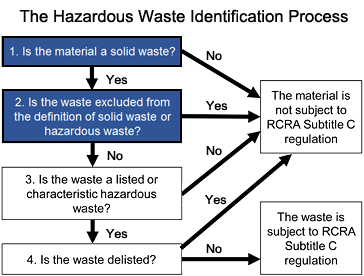Reclaim Waste Fundamentals Explained
Table of ContentsHow Reclaim Waste can Save You Time, Stress, and Money.The 8-Second Trick For Reclaim Waste4 Simple Techniques For Reclaim WasteWhat Does Reclaim Waste Do?What Does Reclaim Waste Do?
Check out the kinds, events, and types of fluid waste. Residential sewage waste describes the waste and products from a property septic storage tank. This kind of waste is produced by humans in residences, institutions, and other structures. This only includes septic systems that have a drainpipe area. The correct monitoring and disposal of domestic sewage waste need liquid waste to be transferred to a sewage therapy plant where the appropriate methods and tools are applied to purify and dispose of waste.
Industrial waste commonly includes prospective threats, such as flammable materials or a combination of liquid and solid waste items, and requires an advanced and in-depth disposal process. The disposal of industrial waste usually includes the purification of waste before transport to make certain secure and correct disposal. Hazardous waste is developed from byproducts and runoff of industrial processes and manufacturing.
This sort of waste can not use the exact same sewer monitoring transportation or procedures as septic or industrial fluids. The industrial waste monitoring process calls for the assessment and screening of fluid waste prior to it undertakes the disposal procedure (liquid waste removal melbourne). Overflow waste is the liquid waste that comes from runoff and excess stormwater in highly populated areas or cities
Runoff waste can cause contamination and flooding if not managed properly. Making certain correct waste administration can protect against disasters and reduce ecological damage.
The Main Principles Of Reclaim Waste
Contact PROS Providers today to learn more about our waste administration and disposal services and the correct means to care for the liquid waste you create.
Do you recognize what takes place to your water when you pull the plug, purge the bathroom or drain the washing equipment? No? Well, it deserves recognizing. This supposed 'wastewater' is not just a crucial resource but, after therapy, will be released to our land, rivers or the sea. Used water from bathrooms, showers, baths, cooking area sinks, washings and industrial procedures is understood as wastewater.

water utilized to cool machinery or clean plant and equipment). Stormwater, a type of wastewater, is overflow that flows from farming and urban areas such as roofings, parks, gardens, roads, courses and gutters right into stormwater drains, after rain. Stormwater moves without treatment directly to regional creeks or rivers, eventually getting to the ocean.
What Does Reclaim Waste Mean?
In Queensland, the majority of wastewater is treated at sewage therapy plants. Wastewater is transferred from domestic or commercial websites via a system of sewage systems and pump terminals, referred to as sewerage reticulation, to a sewage treatment plant. City governments develop, preserve and run most sewer therapy plants. Operators are licensed under the Environmental Protection Act 1994 to discharge cured wastewater at an acceptable ecological criterion right into rivers.
The Division of Natural Resources advises city governments regarding handling, operating and preserving sewerage systems and treatment plants. In unsewered locations, neighborhood federal governments might need homeowners to install individual or house sewer therapy systems to treat domestic wastewater from bathrooms, kitchen areas, shower rooms and laundries. The Department of Natural Resources authorises using home systems when they are shown to be reliable.
Most stormwater receives no therapy. In some brand-new class, treatment of some stormwater to remove litter, sand and crushed rock has actually started making use of gross contaminant traps. Wastewater therapy happens in 4 phases: Removes strong matter. Bigger solids, such as plastics and various other objects wrongly released to drains, are removed when wastewater is gone through displays.
Utilizes little living organisms understands as micro-organisms to break down and get rid of continuing to be liquified wastes and great particles. Micro-organisms and wastes are included in the sludge.
The Main Principles Of Reclaim Waste
Nutrient removal is not offered in any way sewer therapy plants due to the fact that it needs pricey specialized equipment. It is ending up being more common in Queensland. Clear liquid effluent produced after therapy might still have disease-causing micro-organisms. If this effluent is launched right into rivers such as rivers or the sea, the micro-organisms will at some point pass away out.

The majority of wastewater streams right into the sewage system. Under the Act, local federal governments provide approvals and licences for ecologically appropriate tasks (Ages) entailing wastewater launches that might have a neighborhood effect.
Some Known Facts About Reclaim Waste.
Or else, examples are considered laboratory evaluation. Frequently lots of examinations are needed to establish the degrees of each of the various pollutants such as oils, hefty steels and pesticides in water. Tracking supplies valid details concerning water quality and can confirm that permit conditions are being fulfilled. The information acquired with tracking provides the basis for making water quality decisions.
Comments on “The 7-Minute Rule for Reclaim Waste”